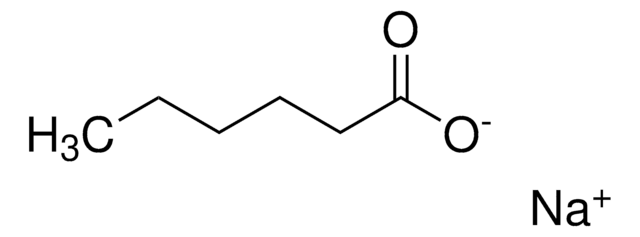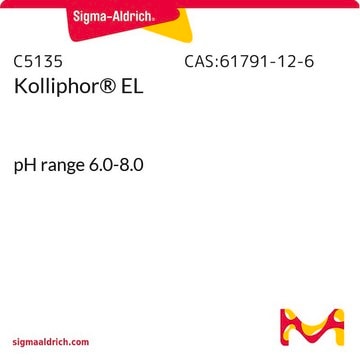L9755
Sodium dodecanoate
99-100%
Synonym(s):
Dodecanoic acid sodium salt, Lauric acid sodium salt, Sodium laurate
About This Item
Recommended Products
biological source
synthetic
Quality Level
Assay
99-100%
form
powder
functional group
ester
lipid type
saturated FAs
shipped in
ambient
storage temp.
room temp
SMILES string
[Na+].CCCCCCCCCCCC([O-])=O
InChI
1S/C12H24O2.Na/c1-2-3-4-5-6-7-8-9-10-11-12(13)14;/h2-11H2,1H3,(H,13,14);/q;+1/p-1
InChI key
BTURAGWYSMTVOW-UHFFFAOYSA-M
Looking for similar products? Visit Product Comparison Guide
Related Categories
Application
Signal Word
Danger
Hazard Statements
Precautionary Statements
Hazard Classifications
Eye Dam. 1 - Skin Irrit. 2 - STOT SE 3
Target Organs
Respiratory system
Storage Class Code
11 - Combustible Solids
WGK
WGK 1
Flash Point(F)
Not applicable
Flash Point(C)
Not applicable
Personal Protective Equipment
Certificates of Analysis (COA)
Search for Certificates of Analysis (COA) by entering the products Lot/Batch Number. Lot and Batch Numbers can be found on a product’s label following the words ‘Lot’ or ‘Batch’.
Already Own This Product?
Find documentation for the products that you have recently purchased in the Document Library.
Customers Also Viewed
Our team of scientists has experience in all areas of research including Life Science, Material Science, Chemical Synthesis, Chromatography, Analytical and many others.
Contact Technical Service













